Data Skills Literacy
for
Educators
Luisa Cutillo, School of Mathematics & LIDA, l.cutillo@leeds.ac.uk
and
Paul Baxter, School of Medicine & LIDA, p.d.baxter@leeds.ac.uk
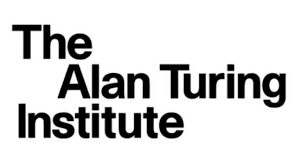
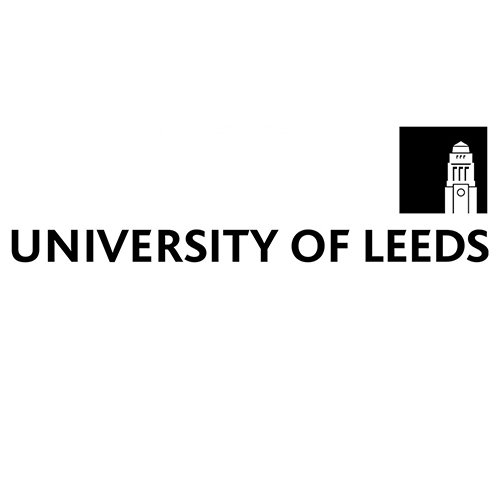
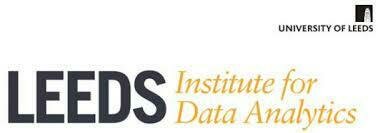

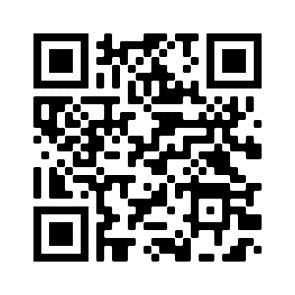
About me: MSc Program Manager
-
MSc in Data Science and Analytics
-
MSc Statistics
-
MSc Statistics with Applications to Finance
-
Networking opportunities with academics and industrial partners on common interest projects
-
Many challenges!
-
Deeper interest in DS in education
What this role brought to me
The Alan Turing Institute is the UK’s national institute for Data Science and Artificial Intelligence.
- Turing Fellowship
- Pilot Turing 2.0 project + Turing Workshop
- DS&AI 12 weeks training for educators
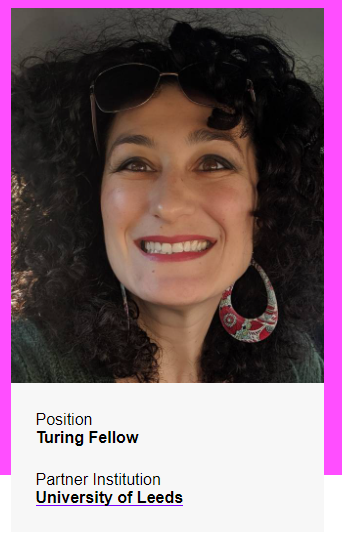
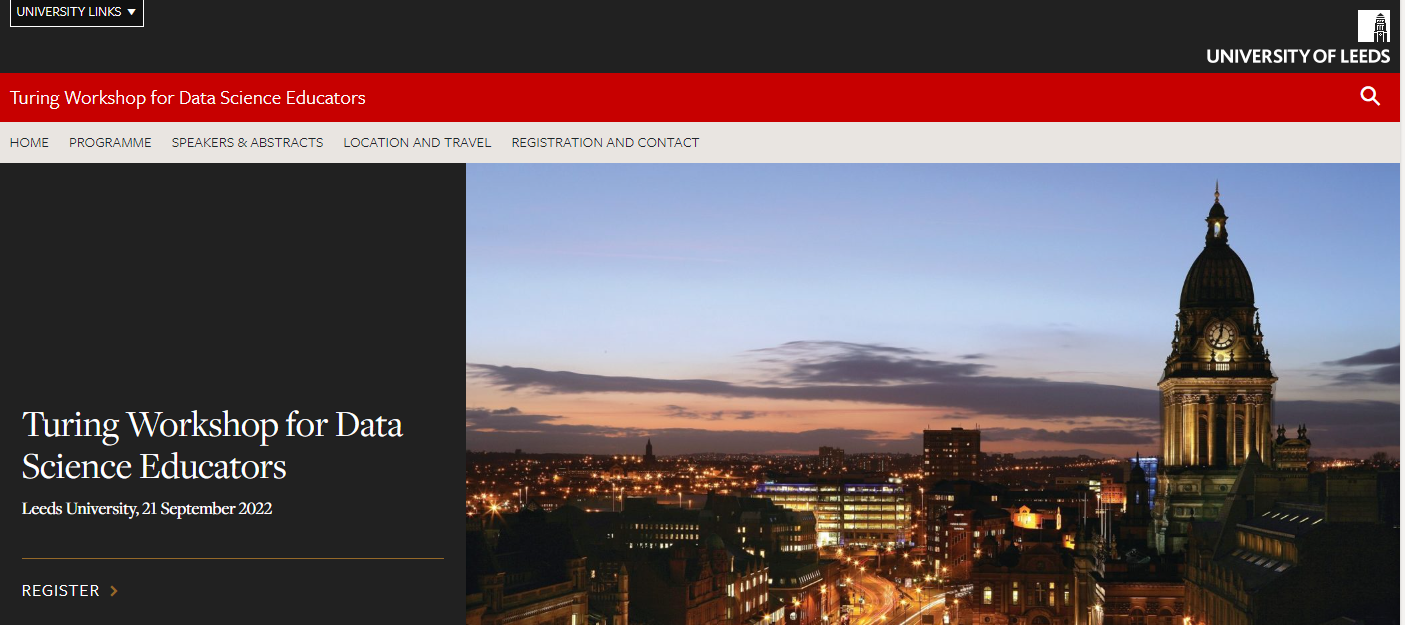
Introduction & Overview
- 'Train the Trainer' approach,
- the Carpentries instructor training
- Open Life Science mentoring programme (OLS).
Common Aims:
to teach participants evidence-based practices on how to teach data skills and the pedagogy behind these.
ATI lesson to implement
- Educators need to be upskilled with up-to-date tools and modalities
- Educators form a large and diverse community
- Many training resources are available but difficult to locate or to know which to use
Who needs this training?
Educators!
HOW?
I started a LITE fellowship (LIDA - sponsor: Paul Baxter) about
Data Skills Literacy for Educators
to support train the trainer activities locally at Leeds
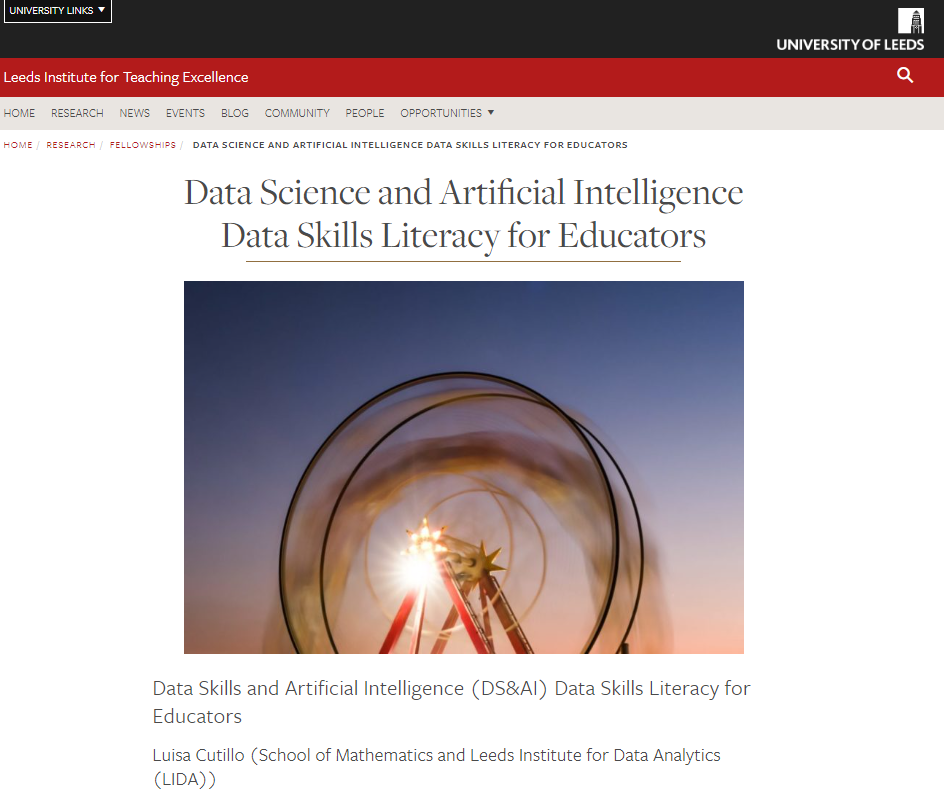
- Educators in all disciplines now need to teach data skills
- Educators require industry-relevant skills
- ATI Skills group
Skills and knowledge of learners and educators often don't align with the needs and expectations of industry, resulting in a gap that needs to be addressed.

Skills Gap
Bridging Skills Gap
A. Identification of the Skills Gap:
Surveys for academics involved in AI and DS education, Students and Industry members
B. Building a skill development set of training for educators
Collaboration with Alan Turing Institute’s (ATI) Skills Group
Collection of available training material via UoL (see Linkedin, Coursera, Future Learning).
Creation of DS&AI educators local interest group (UoL) to discuss multidisciplinary DS&AI challenges and ideas
C. Collaborating with industry:
Participate to calls for raising students’ employability skills
Organise workshops/seminars with companies interested in partnering with universities with the potential to offer placements and employment opportunities.
Questions
A. How would you suggest to Identify Skills Gap in your field?

B. What set of training would you recommend?
C. Is collaboration with industry relevant in your field and are there any gaps to be addressed to favour such interaction?
Outcomes
Outcomes
Creation of a DS&AI in education local interest group
- Local community of DS&AI Educators Network
- quarterly meetings
- Interaction with the National community of DS&AI educators
- Events planning and resources sharing
- MS Teams shared space
- GitHub public and private repo
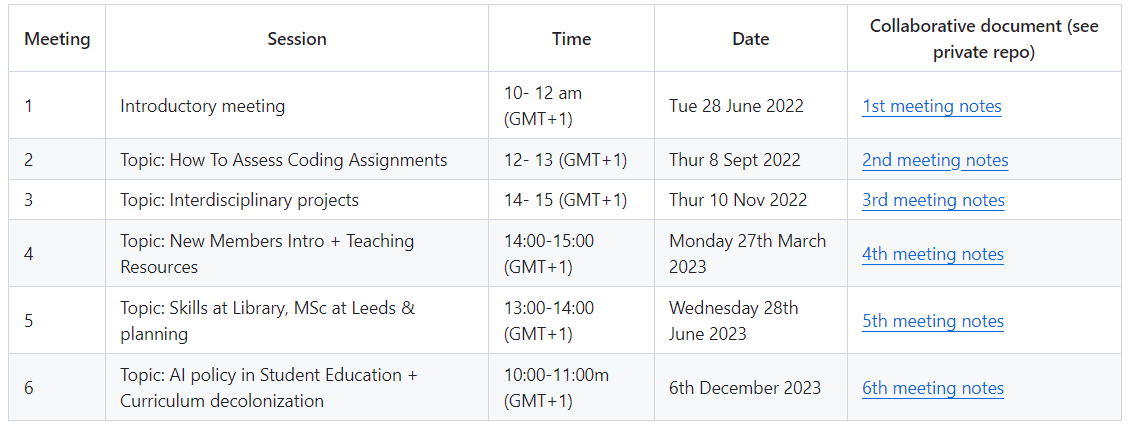
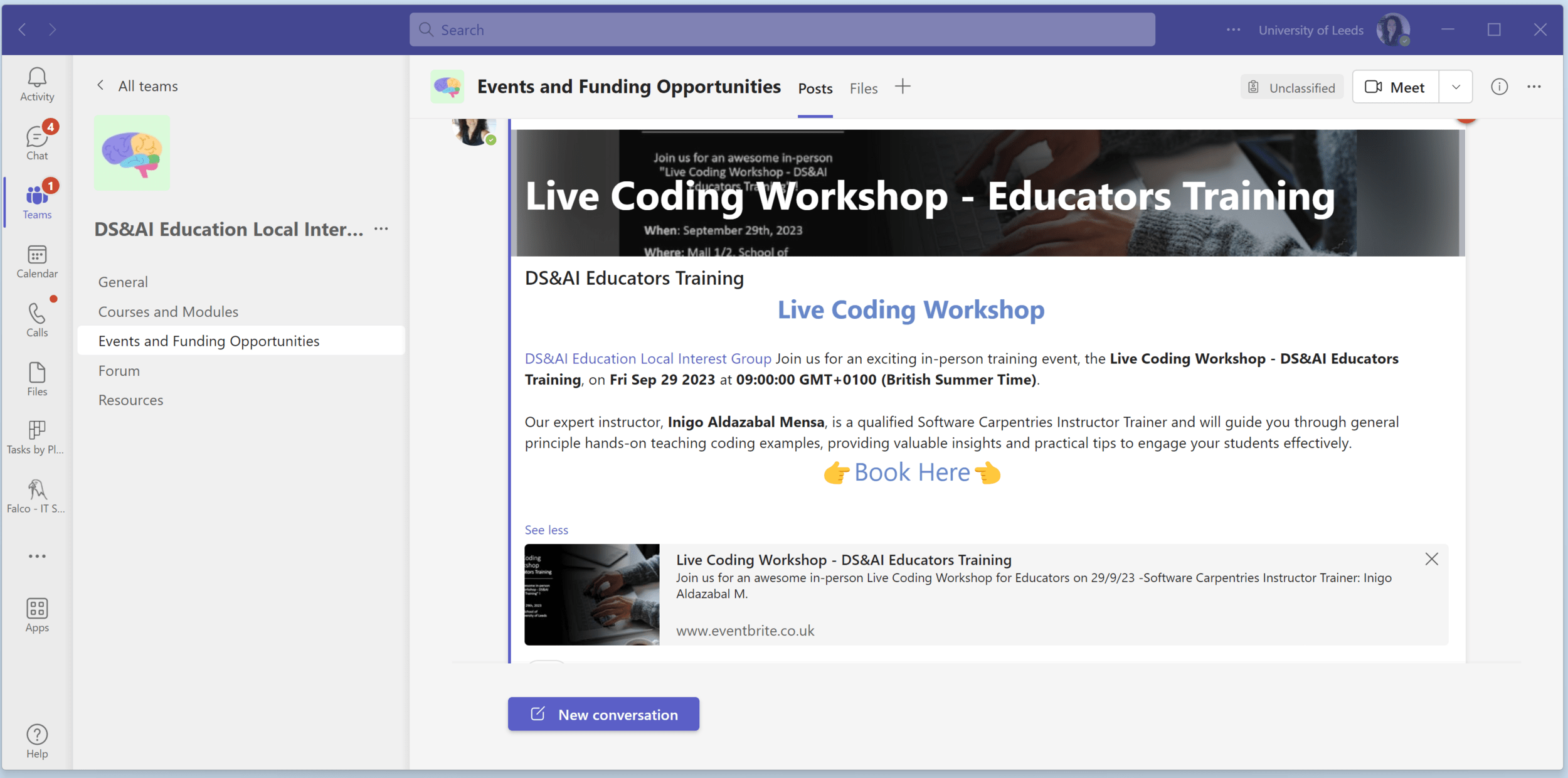
Outcomes
GitHub Repo
MS Teams
Shared Space
Online Workshop !
Co-organiser: Matt Bawn, Faculty of Biological Sciences
Date: 17th of July 2023
Invited Speakers: Laura-Jayne Gardiner (ibm), Dipali Singh (quadram)
Local Speakers: Pam Birtill (Academic lead for LEAF -Leeds Expectations for Assessment and Feedback), Martin Callaghan (School of Computing)
Workshop held:
Use of ChatGPT in Education

On Campus Training Workshop!
Date: 29th September 2023
Instructors Trainer: Inigo Aldazabal Mensa
Shared Resources Here!
Workshop held:
Live Coding
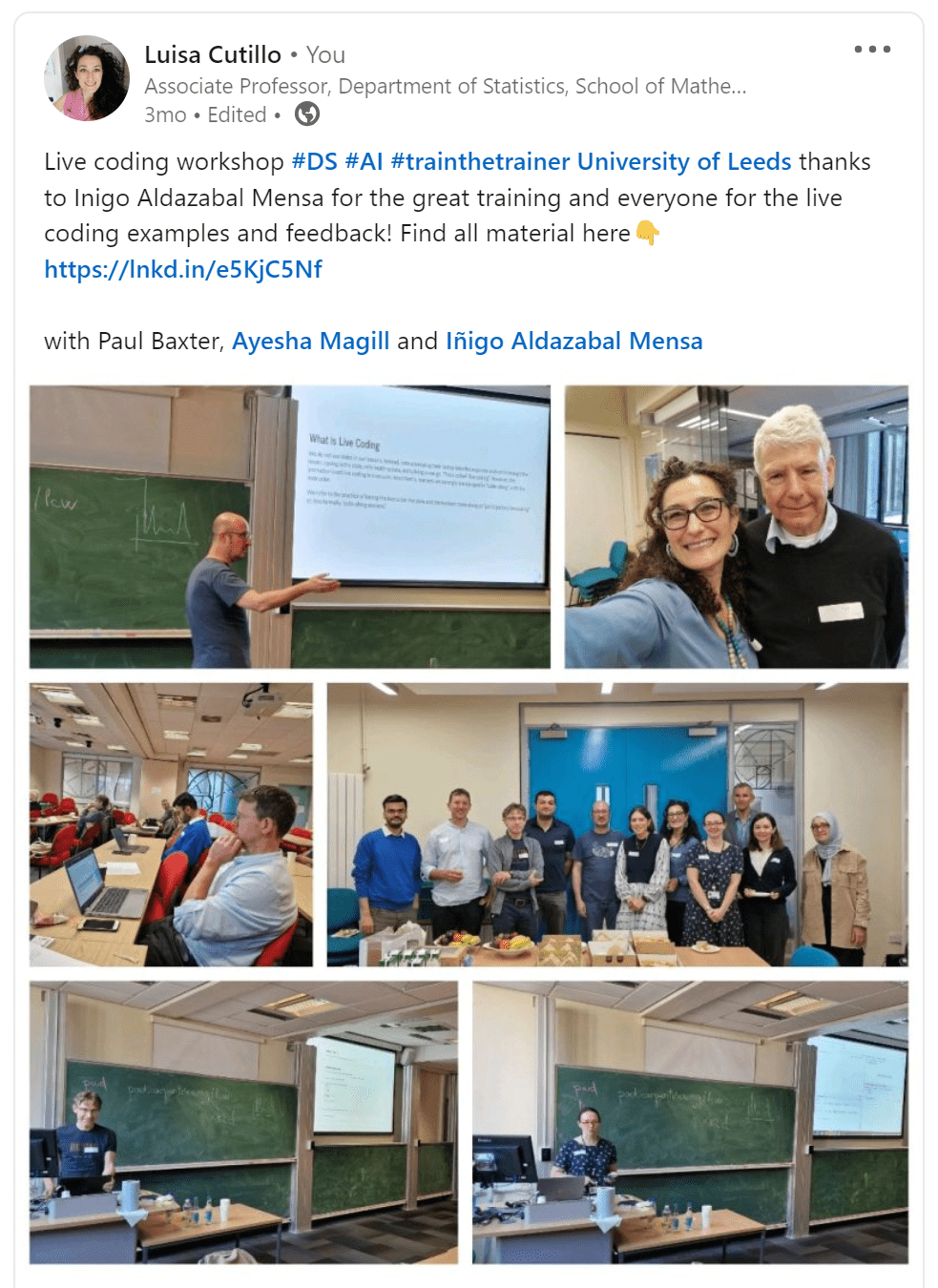
Preliminary results from the surveys and interviews
| Students | Staff/Industry | |
|---|---|---|
| Surveys | 50 | 24 |
| Interviews | 8 | 2 |
| Focus group | 5 | NA |
Students Survey Highlights
Lack of Diversity in the responders-> Mainly STEM PG
- ~60% responders from the faculty of Engineering and Physical Sciences
- Other from schools s.a. Medicine, Business, Biological Sciences (<3)
Technical and Soft Skills overall improved after the MSc
- 77% responders would benefit from data skills training not currently included in their MSc program
Students Survey Highlights
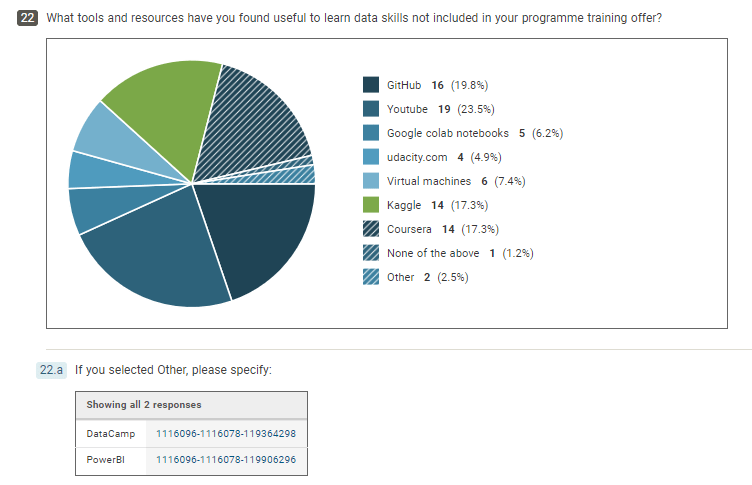
Students Interviews Highlights
Common Suggestions Emerged
- Career/Placement help through more specific knowledge domain skills teaching
- Inclusion of more recent technologies and cutting edge tools in DS
Staff (14)/Industry (10) Survey Highlights
Data Skills Training
- 40% would benefit from receiving data skills training
- need of guided online training resources
- need for best practices
Lack of Diversity in the responders-> Mainly STEM
- ~80% of academic responders from the faculty of Engineering and Physical Sciences
Main Challenges in upskilling non-STEM students in quantitative and computational methods
- inadequate quantitative skills at entry level
- persuading non-STEM Schools to integrate AI&DS into non-STEM programmes and modules.
Collaboration with industry
Widening access to under-represented groups into DS and AI industries
- The University, through LIDA, won funding from the Office for Students to offer 18 data science-related Masters scholarships in the 2023/24.(Press release).
- The scholarship programme aims to encourage more women, Black students, disabled students and those from lower socio-economic backgrounds into Data Science and AI industries.
- Value : 10k per scholarship (180K)+ eligible for Leeds Masters Scholarships (7K) + enrolled in The Plus Programme.
Industrial Engagement and Sponsorship
- GSK: this year the global biopharma GSK sponsored one scholarship.
- VISA: the world leader in digital payments VISA just announced (see press release) they will sponsor one 10k scholarship on this program for the MSc in Data Science and Analytics next year (2024/25).
- 24 (240K) likely scholarships in 2024/25, subject to confirmation of continued government funding to OfS.
Ricky Arnold, Head of Talent Acquisition Europe at Visa, said: “At Visa, we’re committed to supporting up-coming talent and truly believe that diversity of thought is at the heart of progressive work environments.”
MATH0000 Pre-sessional Conversion Course for Data Science and Analytics
- The MSc in DSA is one of the beneficiaries of such scholarships.
- We designed a new module needed to meet the conversion requirements detailed by the call.
- This conversion course is designed only for individuals who are looking to transition into the field of AI and data science from a non-STEM or far-STEM background that would not otherwise meet the admission criteria.
- All the scholarship students were enrolled onto the Conversion Course, compulsory for 3 DSA students.
- more rounds of surveys
- comparing cohorts
- more training workshop(s)
- Call for next LITE Project to be sponsored by LIDA